Mahatma Gandhi: The Life and Legacy of a Global Icon of Nonviolence

:
Mahatma Gandhi, the revered Indian independence leader, is widely recognized as one of the most influential figures of the 20th century. His unwavering commitment to nonviolent resistance, known as Satyagraha, transformed India's struggle for independence and left an indecipherable mark on global movements for social justice. This article delves into the extraordinary life and legacy of Mahatma Gandhi, exploring his journey, principles, and the profound impact he continues to have on the world.
Early Life and Education:
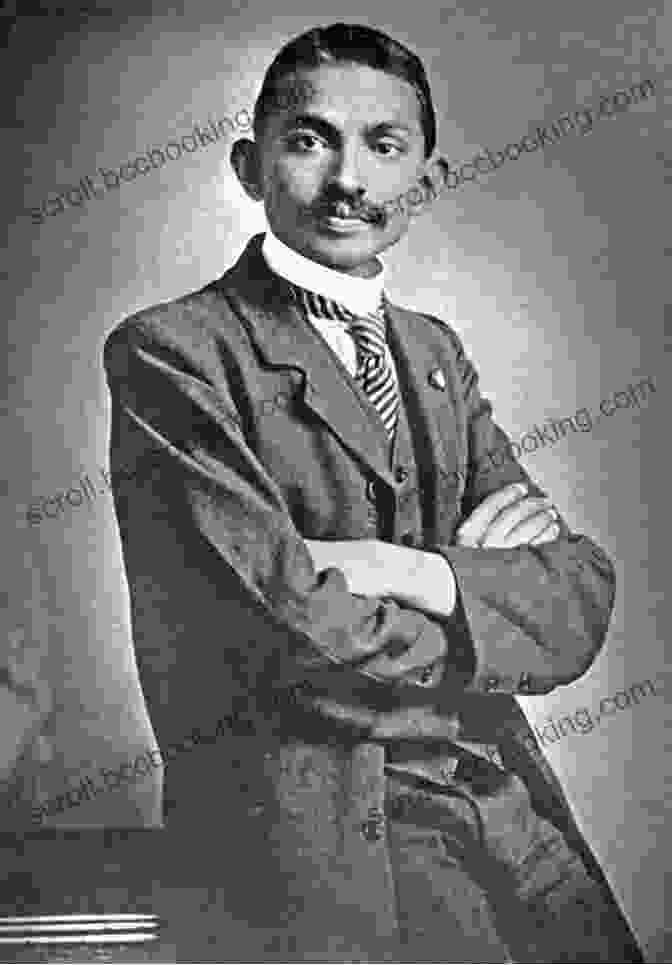
4 out of 5
| Language | : | English |
| File size | : | 6821 KB |
| Text-to-Speech | : | Enabled |
| Screen Reader | : | Supported |
| Enhanced typesetting | : | Enabled |
| X-Ray | : | Enabled |
| Word Wise | : | Enabled |
| Print length | : | 336 pages |
| Lending | : | Enabled |
Mohandas Karamchand Gandhi was born on October 2, 1869, in Porbandar, India. His early life was shaped by his deeply religious parents and the teachings of Jainism, which emphasizes nonviolence and respect for all living beings. Gandhi's journey to South Africa in 1893 proved to be a pivotal moment, exposing him firsthand to racial discrimination and injustice.
The Birth of Satyagraha:
In South Africa, Gandhi faced numerous instances of racial prejudice, which ignited within him a deep determination to fight against oppression. He developed the concept of Satyagraha, meaning "truth-force" or "soul-force," advocating for nonviolent resistance as the only legitimate means to achieve justice. Satyagraha emphasized self-purification, non-cooperation with unjust laws, and a steadfast belief in the ultimate victory of truth over evil.
The Indian Independence Movement:
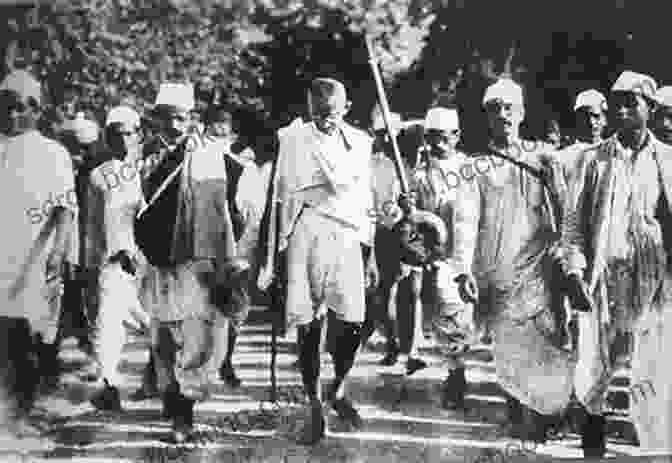
Upon returning to India in 1915, Gandhi emerged as the leader of the Indian independence movement. He organized numerous successful nonviolent civil disobedience campaigns, including the Non-Cooperation Movement, the Champaran Satyagraha, and the historic Salt March. These campaigns brought national attention to the plight of the Indian people and played a crucial role in India's eventual independence from British rule in 1947.
Principles of Gandhian Philosophy:
Gandhi's philosophy embraced a multifaceted approach to social and political transformation. Some of the key principles of his teachings include:
- Nonviolence (Ahimsa): The cornerstone of Gandhi's philosophy, emphasizing the rejection of violence and the belief in the power of love and compassion.
- Truth (Satya): The pursuit of truth and integrity as the guiding force in all actions.
- Civil Disobedience: The nonviolent refusal to obey unjust laws as a means to protest and bring about change.
- Self-Reliance (Swadeshi): Promoting economic independence by encouraging the use of local products and industries.
- Sarvodaya: The welfare of all, emphasizing the importance of serving the poorest and most marginalized in society.
The Legacy of Mahatma Gandhi:
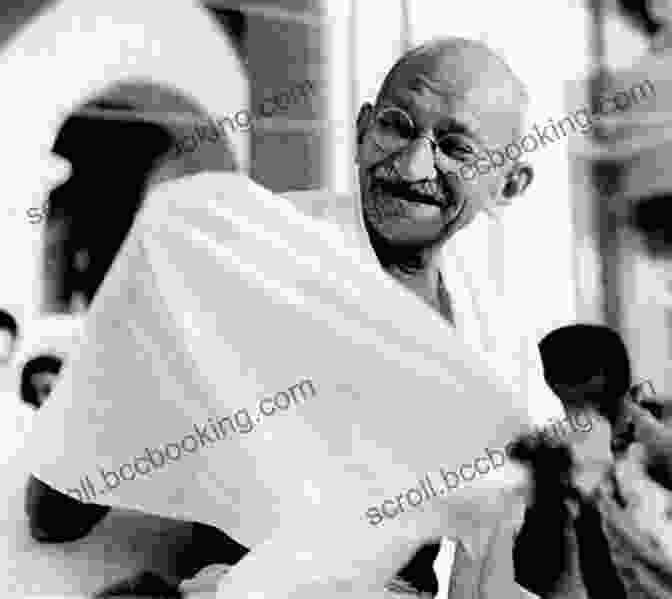
Mahatma Gandhi's assassination on January 30, 1948, shocked the world and left an irreplaceable void. However, his legacy of peace and nonviolence endures to this day. Gandhi's principles have inspired countless individuals and movements globally, including Martin Luther King Jr.'s civil rights movement in the United States, Nelson Mandela's anti-apartheid movement in South Africa, and the Dalai Lama's advocacy for Tibetan independence.
:
Mahatma Gandhi's life and legacy serve as a powerful testament to the transformative potential of nonviolent resistance and the enduring power of truth and compassion. His unwavering belief in the dignity of all human beings and his commitment to social justice continue to inspire and guide individuals and nations worldwide. As we navigate the challenges of the 21st century, the principles of Gandhian philosophy offer valuable lessons and a roadmap for building a more just, equitable, and peaceful world.
4 out of 5
| Language | : | English |
| File size | : | 6821 KB |
| Text-to-Speech | : | Enabled |
| Screen Reader | : | Supported |
| Enhanced typesetting | : | Enabled |
| X-Ray | : | Enabled |
| Word Wise | : | Enabled |
| Print length | : | 336 pages |
| Lending | : | Enabled |
Do you want to contribute by writing guest posts on this blog?
Please contact us and send us a resume of previous articles that you have written.
 Book
Book Novel
Novel Page
Page Chapter
Chapter Text
Text Story
Story Genre
Genre Reader
Reader Library
Library Paperback
Paperback E-book
E-book Magazine
Magazine Newspaper
Newspaper Paragraph
Paragraph Sentence
Sentence Bookmark
Bookmark Shelf
Shelf Glossary
Glossary Bibliography
Bibliography Foreword
Foreword Preface
Preface Synopsis
Synopsis Annotation
Annotation Footnote
Footnote Manuscript
Manuscript Scroll
Scroll Codex
Codex Tome
Tome Bestseller
Bestseller Classics
Classics Library card
Library card Narrative
Narrative Biography
Biography Autobiography
Autobiography Memoir
Memoir Reference
Reference Encyclopedia
Encyclopedia Paula Polk Lillard
Paula Polk Lillard Kathy Fettke
Kathy Fettke Marie Rochelle
Marie Rochelle Erin Lowry
Erin Lowry Meb Keflezighi
Meb Keflezighi Sam Nadler
Sam Nadler Kathy Valentine
Kathy Valentine James Gregory
James Gregory John Ogwyn Rees
John Ogwyn Rees Erika Bornman
Erika Bornman Jeremy Mercer
Jeremy Mercer Eric Seale
Eric Seale Ernst Bergen
Ernst Bergen Simon Needham
Simon Needham Eric Cervini
Eric Cervini Sarah A Reinhard
Sarah A Reinhard Johnny Molloy
Johnny Molloy Erich Krauss
Erich Krauss Laura D Adams
Laura D Adams Uk Ed Edition Kindle Edition
Uk Ed Edition Kindle Edition
Light bulbAdvertise smarter! Our strategic ad space ensures maximum exposure. Reserve your spot today!
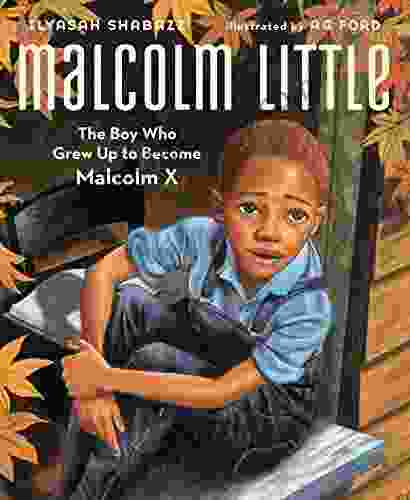
 Heath PowellThe Boy Who Grew Up To Become Malcolm: An Unforgettable Journey of Identity,...
Heath PowellThe Boy Who Grew Up To Become Malcolm: An Unforgettable Journey of Identity,... Anton FosterFollow ·17.2k
Anton FosterFollow ·17.2k David PetersonFollow ·2.4k
David PetersonFollow ·2.4k Cole PowellFollow ·8.5k
Cole PowellFollow ·8.5k Felix CarterFollow ·8.3k
Felix CarterFollow ·8.3k Joseph FosterFollow ·10.3k
Joseph FosterFollow ·10.3k Ross NelsonFollow ·4.9k
Ross NelsonFollow ·4.9k Frank ButlerFollow ·9.5k
Frank ButlerFollow ·9.5k Ian MitchellFollow ·11.3k
Ian MitchellFollow ·11.3k

 Roland Hayes
Roland HayesMagda: A Mother's Love, A Daughter's Redemption - A...
Immerse Yourself in the Captivating True Story...

 Spencer Powell
Spencer PowellSnow White Retold: A Tale of Love, Magic, and...
Once upon a time, in...

 Jake Powell
Jake PowellMaster the SATs with Effective Strategies from 99th...
The SATs are a challenging exam,...

 Brian Bell
Brian BellSEO for Dummies: Unlock the Secrets to Search Engine...
In today's digital...
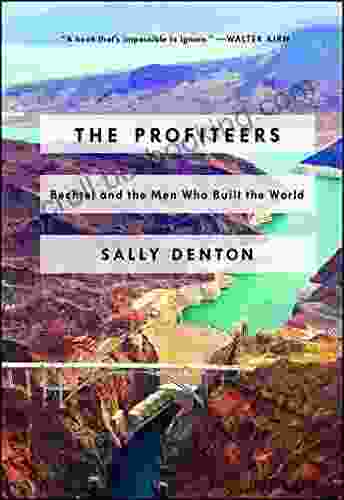
 Jaylen Mitchell
Jaylen MitchellBechtel: Unveiling the Unsung Heroes Who Built the World
In the annals of global infrastructure, the...
4 out of 5
| Language | : | English |
| File size | : | 6821 KB |
| Text-to-Speech | : | Enabled |
| Screen Reader | : | Supported |
| Enhanced typesetting | : | Enabled |
| X-Ray | : | Enabled |
| Word Wise | : | Enabled |
| Print length | : | 336 pages |
| Lending | : | Enabled |











